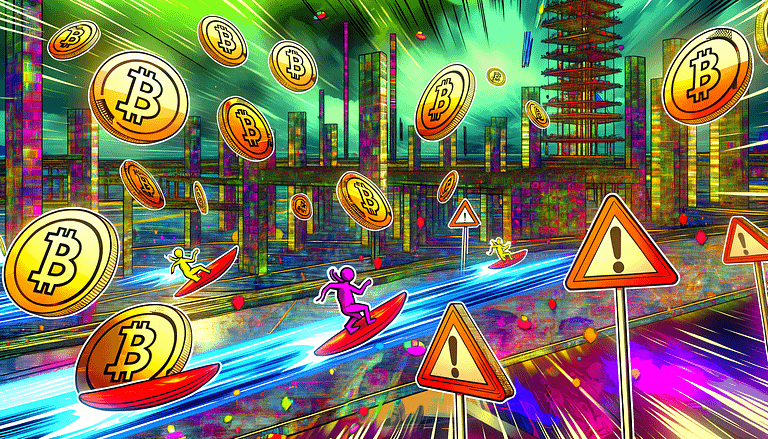Beware of NFT Swap Scams: Protect Your Assets
In A Nutshell
NFT (Non-Fungible Token) swap order scams are a growing concern within the digital asset space. These scams involve tricking individuals into exchanging their valuable NFTs for counterfeit or worthless ones. Understanding the mechanics of these scams and the red flags to look out for is crucial for anyone engaging in NFT transactions.
Understanding NFT Swap Orders
An NFT swap order is a transaction where parties exchange NFTs, which are distinct digital assets verified using blockchain technology. Unlike cryptocurrencies such as Bitcoin or Ether, each NFT has unique characteristics and represents digital content like virtual real estate, music, or art. Swap orders facilitate ownership exchanges and can involve a combination of NFTs, cryptocurrencies, or other assets. These transactions can occur directly between individuals or through decentralized exchanges (DEXs) and specialized trading platforms.
The Mechanics of NFT Swap Order Scams
Scammers exploiting the NFT swap order mechanism often create fake NFTs that resemble valuable ones. They then engage in swap orders, offering these fraudulent NFTs in exchange for genuine, valuable NFTs. Victims of these scams might not realize the swap involved counterfeit items until attempting to resell or verify their authenticity, often finding little recourse due to the irreversible nature of blockchain transactions and the anonymity of the perpetrators.
Spotting Red Flags in NFT Swap Orders
To safeguard against NFT swap order scams, traders should be vigilant for several warning signs:
– Offers that appear too good to be true, such as exceptionally low prices for high-value NFTs.
– Sellers who pressure for a quick transaction or refuse to allow time for due diligence.
– NFT details that closely mimic those of well-known collections, suggesting a counterfeit.
– Sellers with limited or questionable transaction history, or those unwilling to provide additional verification.
– Transactions proposed to be conducted outside established and secure platforms.
Ensuring Safety in NFT Transactions
Verifying the authenticity and ownership of an NFT before completing a swap is paramount. This involves:
– Reviewing the seller’s transaction history on the marketplace.
– Checking the smart contract address against the official collection’s address, typically available on the project website or major marketplaces like OpenSea.
– Utilizing blockchain explorers like Etherscan to inspect the smart contract details and the NFT’s transaction history.
– Participating in community forums or Discord channels to gather insights on potential scams.
Choosing transactions through reputable marketplaces that offer vetting processes and fraud prevention measures can offer an additional layer of security.
Our Take
The rise of NFT swap order scams underscores the need for vigilance and due diligence in the digital asset market. By understanding how these scams operate and recognizing the red flags, traders can better protect themselves against potential fraud. Always verify the authenticity and ownership of NFTs and prefer secure, reputable platforms for transactions. As the NFT market continues to evolve, staying informed and cautious will be key to navigating it safely.







